Addressing post-partum haemorrhage (PPH) in Sierra Leone
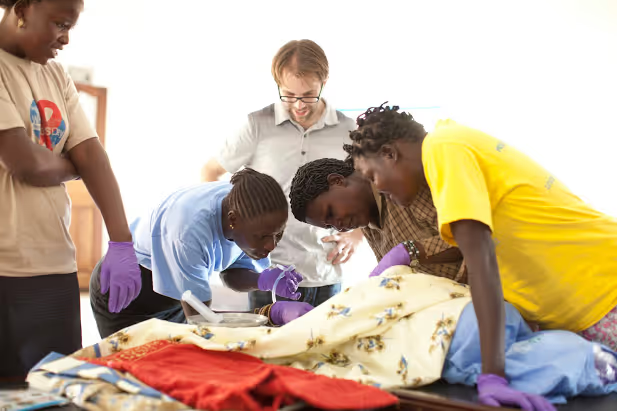
Background on Every Second Matters - Uterine Balloon Tamponade
Postpartum haemorrhage (PPH) is the leading cause of maternal morbidity and mortality in developing countries.
The vast majority of PPH cases occur in low- and middle-income countries. In Sierra Leone, the maternal mortality ratio is 850 per 100,000 live births, with the leading cause being PPH. Currently, there is a lack of accessible, effective options in these settings to treat PPH when bleeding is uncontrolled by initial interventions, such as uterine massage, uterotonics, and manual uterine evacuation.
More than 30% of all maternal deaths are attributable to postpartum haemorrhage (PPH), accounting for approximately 130,000 deaths annually, with an additional 2.6 million suffering from PPH-related disability.
We have developed an award-winning, ultra-low-cost, best-evidence PPH package with an embedded uterine balloon tamponade (UBT) kit called Every Second Matters for Mothers and Babies–Uterine Balloon Tamponade (ESM–UBT).
Our ESM-UBT device (US $5) comprises a condom tied to a Foley catheter, inflated with clean water through a syringe and one-way stopcock to achieve tamponade and arrest of bleeding. We have successfully introduced ESM-UBT in South Sudan, Kenya, Ghana, Senegal, and Nepal. We closely tracked placement of our ESM-UBT device among 168 critically ill women with uncontrolled PPH, and have documented 96.4% survival among these women.
Our HIF partnership is our first-ever scale up of ESM-UBT in Sierra Leone, with the goal of reducing maternal deaths and disability in target regions.
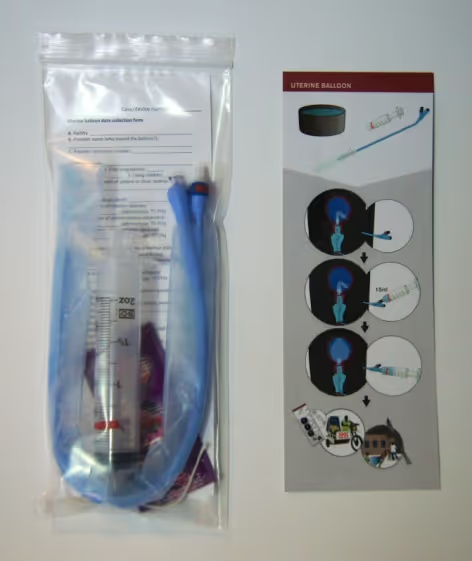
UBT can largely replace the need for emergency surgical care for uncontrolled PPH by providing a simple, rapid, affordable, and effective point-of-care method to manage PPH. In most cases, UBT stops the bleeding rapidly and is an end-point intervention. UBT has been recognized by WHO, International Federation of Gynecology and Obstetrics (FIGO), American College of Obstetricians and Gynecologists,Royal College of Obstetricians and Gynecologists, and International Confederation of Midwives as a method that may significantly impact management of PPH.
Our published systematic literature review found UBT to be effective and safe. Furthermore, by virtue of capturing detailed data from each tracked use, the UBT can serve as a "tracer," whereby we can assess the quality of each step of the health system's response to women in greatest danger (those with uncontrolled PPH).
Implementation of ESM-UBT in Sierra Leone
On December 15, 2013, Dr. Thomas Burke, Chief of the Division of Global Health and Human Rights in the Department of Emergency Medicine at MGH, met with the Ministry of Health in Sierra Leone regarding roll-out of ESM-UBT in the country. With their support and collaboration, he subsequently trained 100 mid-level health providers (two health care workers from 50 facilities across the country) on how to use ESM-UBT.
The two-week training session was designed to be a “training of trainers” program. Each one of the health workers who were trained during the month of December were then expected to teach staff members in their own facilities on how to use UBT, thus facilitating a knowledge stream that would extend throughout the country.
One month following initial roll-out of ESM-UBT, members of our team completed a comprehensive follow-up with all of the 100 health care workers who were initially trained, to determine the following:
- whether they had used the UBT kits in their facilities;
- whether they had trained other staff members on the protocol
- how much information they retained from the initial training one month earlier;
- what sorts of challenges they had encountered with the program.
At the end of January 2014, 63 more health workers at 32 facilities were trained on ESM-UBT, and in February 2014, monitoring and evaluation of all health workers and facilities began.
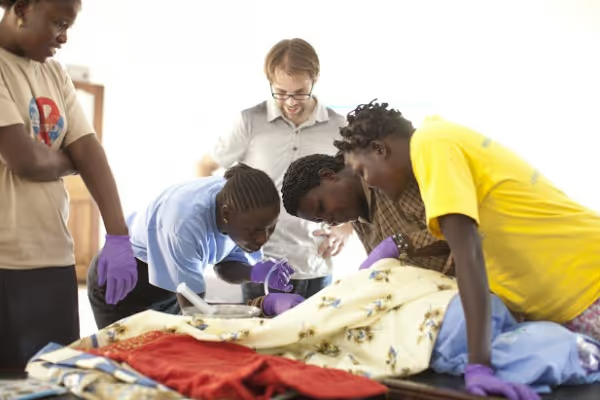
Data Collection and Reports on UBT Use
In the 8-month time period since implementation of the UBT program, there have been a total of 38 UBT uses, 35 of which have resulted in patient survival. This accounts for a 91.43% survival rate associated with ESM-UBT use in our Sierra Leone study.
The three patient deaths so far have all occurred within the first 2 months of UBT implementation in Sierra Leone. Steps have since been taken to ensure all study health providers understand the reasons behind the three maternal deaths. Revisions have been made to training protocols to ensure health providers entering the study will avoid repeating the same procedures that may have contributed to the fatal outcome of the 3 patients. Such measures include refresher trainings for study facilities on a biannual basis and additional mandatory practical aspects to all training.
Furthermore, the Sierra Leone Ministry of Health authorities want our help now more than ever with expanding rollout of the ESM-UBT kit on a national level. The Director of Reproductive Health anticipates a national rollout to proceed at the beginning of 2015. This will be part of a sustainable national health worker training initiative.
The initiative will aim to address the maternal health disparities facing Sierra Leone which have not suddenly disappeared, but rather intensified, due to the Ebola epidemic.
Impact of Ebola Epidemic on ESM –UBT Program
The ESM-UBT program has remained remarkably resilient throughout the Ebola epidemic. In early September, our team on the ground had difficulty collecting our weekly data from health workers due to a three-day government shut down (to facilitate Ebola sensitization).
However, the statistics were collected with minimal difficulty the next week. This past week, Dr. Kargbo, Director, Reproductive and Child Health Programme, Ministry of Health of Health and Sanitation, informed us that the funds designated by the Ministry of Health for use in UBT national rollout (in addition to all healthcare funds) have been reallocated to Ebola management. He remains optimistic, however, that roll-out will proceed as management for the epidemic becomes more controlled.
Stories from the Field
A note from one of our team members on the ground...
“One of the most exciting things I have experienced thus far while here is the enthusiasm of certain health care providers to teach and disseminate knowledge of UBT. For example, one of the providers who we had initially trained on UBT came from a very rural area that was hard to access. It would take hours and hours for her to get to the referral center every day, and yet she was the in-charge at her health center. This woman really loved UBT, and she taught not only her own staff how to use it, but championed it to the local governments and other health centers as well. Her initiative amidst everything the country is currently facing was incredible.”
Stay updated
Sign up for our newsletter to receive regular updates on resources, news, and insights like this. Don’t miss out on important information that can help you stay informed and engaged.
Related articles
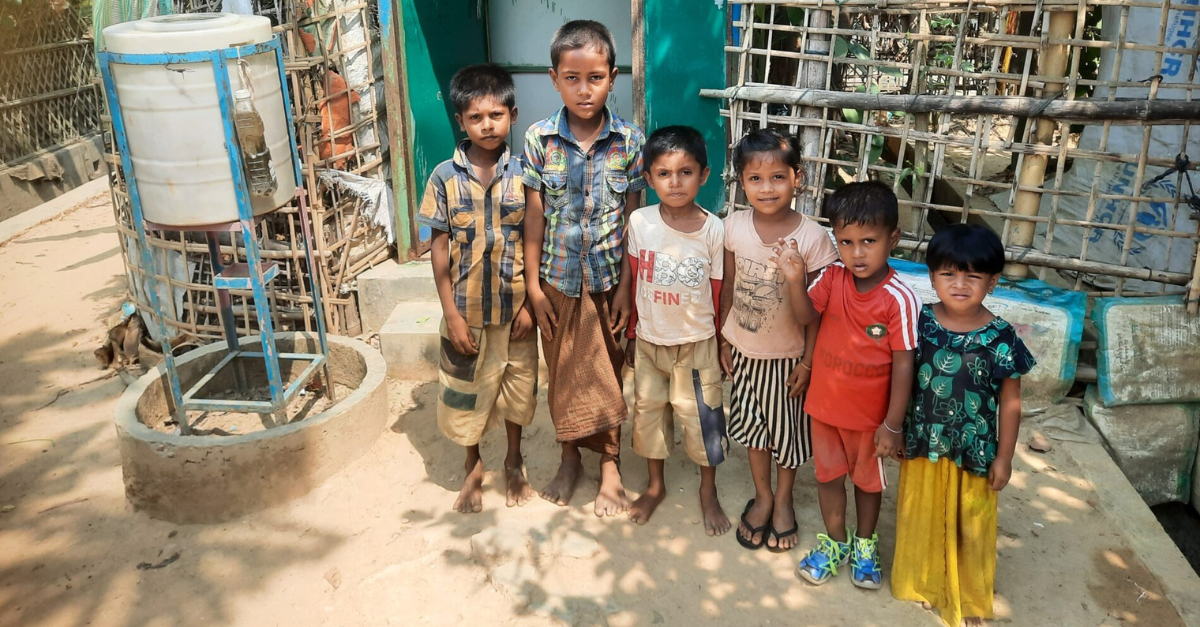

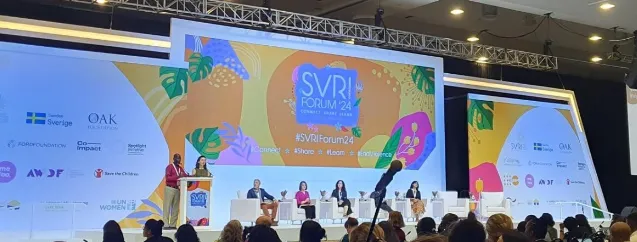
Explore Elrha
Learn more about our mission, the organisations we support, and the resources we provide to drive research and innovation in humanitarian response.